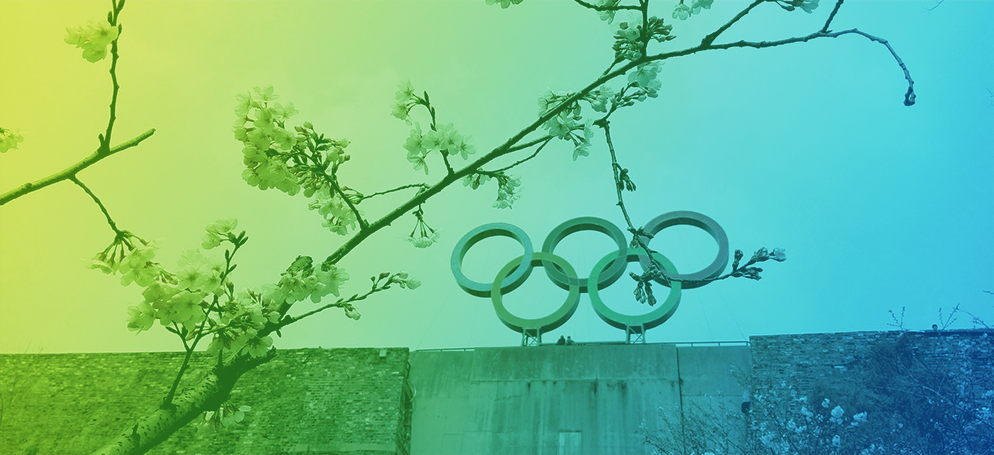
8 things you need to know about Tokyo 2020
The 32nd Olympic Games have been one of the most difficult for organisers and sponsors to navigate. Originally scheduled for 2020, they were postponed to 2021 when it was believed that the worst of the pandemic would be over. With the Games underway, we look at the key points international marketers need to know.
1) Perceptions of the Games vary around the world
In July, Ipsos Mori published research which explored how attitudes towards this year’s Games vary by country. You can read their detailed findings – based on surveys in 28 countries – on their website but key points include:
• People were divided on whether the Games should have gone ahead. On average across the 28 countries, 43% agreed it should go ahead whilst 57% disagreed.
• Support was significantly lower in the host nation – Japan – where 78% did not want the Games to go ahead.
• India, South Africa and China were the countries most interested in the Games.
• Belgium, South Korea and Japan were the least interested.
• Of the 28 countries surveyed, majorities in 13 countries said they were very or somewhat interested in the Games. Conversely, majorities in 15 countries said they were not very or at all interested.
2) Muted interest in Japan is driven by Covid-19 fears
The lack of support in Japan for Tokyo 2020 is driven by fears that it will lead to a further spike in Covid-19 cases. In the run-up to the Games, Tokyo was enduring a fourth state of emergency, and to date 127 people connected to the event have tested positive for Covid. These fears mean that the event lost support from even its strongest advocates, including former Japanese Prime Minister Shinzo Abe who said he wouldn’t attend.
Our LIME in Tokyo told us, “In the run-up to the Games, protests in Tokyo were frequent. An association representing thousands of Japanese doctors called for the Games not to go ahead, and so did many business leaders. People were worried about the availability of hospital beds if the Games cause additional Covid outbreaks.”
In response to public opposition, some sponsors distanced themselves from the event, including Toyota and Coca-Cola who dialled back ads and activations in Japan. Most sponsors are focusing their marketing efforts outside Japan instead.
3) Tricky balancing act for sponsors
Covid has presented a challenge for sponsors, not least because it has prevented spectators from attending. Normally, Olympic imagery revolves around packed stadiums with cheering fans – optics that sponsors can use to their advantage. Faced with empty arenas this year, the risk for sponsors is that Tokyo 2020 appears sterile by comparison.
Sponsors have had to be mindful of a host nation which is not in a celebratory mood. They have also had to avoid implying that Tokyo 2020 represents a return to normal – something that International Olympic Committee President Thomas Bach had previously suggested – given that the pandemic continues and only 15% of the world’s population is fully vaccinated. In addition, companies have not been able to take advantage of their hospitality benefits to the extent they would under normal circumstances.
As a result, sponsoring brands have been more subdued than previous Games, with messaging focusing on perseverance and resilience – echoing the athletes themselves.
4) Mobile streaming is gaining at the expense of TV
Since the last Olympics were held in Rio de Janeiro in 2016, mobile devices have become more powerful and 5G is more widespread. This means mobile has played a significant role in Tokyo 2020. One survey showed that 46% of fans said they would watch the event on their smartphones or tablets.
As a result, we have seen mobile-first programming such as Samsung’s Galaxy Tokyo 2020 Media Centre, which curates event highlights and news so fans can periodically check on their phones. In the US, NBC has partnered with Snapchat, Twitch and Twitter to offer short-form, supplementary content on the Games, allowing brands which market through NBC to reach mobile-minded consumers.
5) The most digital Games ever
Even without Covid-19, Tokyo 2020 was always likely to be more digital than previous Games, since technology has moved on. However, across sectors and markets, the pandemic has accelerated digital transformation, and the Games are no exception. The lack of live spectators has increased the need for the Olympics brand itself to have a strong online presence.
In the run up to the Games, the International Olympic Committee consolidated its various websites for each individual Games into one main digital platform – Olympics.com. This aims to be the single source of Games-related information, including comprehensive detail about every Olympics dating back to 1896.
The IOC hoped that a single digital platform would generate more traffic and therefore more data, which could be used to undertake more ambitious activity. Given the restrictions on international travel, a key goal was to involve fans who may have felt detached from the Games. An early initiative – and historic first – was to enable fans to vote for the logo of the 2026 Winter Olympics (to take place in Milan and the Cortina d’Ampezzo ski resort).
The IOC has invested heavily in video content – hosted on Olympics.com – much of which is designed to inspire athlete-to-athlete (A2A) comms, since it portrays stories involving the preparation, anxiety and struggles involving in competing at the Games. The videos are distributed through first-party social channels and via partnerships with Twitter, Instagram, TikTok and others. Rights-holding broadcasters also run it, as do top-level partners such as P&G, Airbnb and Alibaba.
A balancing act for the IOC is not to lose sight of the main comms platform – which is broadcasters who pay for the right to show the Games – whilst simultaneously reflecting the global audience shift to digital channels.
6) Virtual Games for the first time
Prior to Tokyo 2020, the Olympics hosted its first-ever virtual sporting event series, the Virtual Games. This took place between 13th May and 23rd June. Competitors played in virtual versions of five different physical sports: motorsport, cycling, baseball, sailing, and rowing. The cycling competition, for example, took place in Zwift, which lets you pair your bike and a bike trainer with your computer, phone, or tablet. The motorsport competition took place entirely inside Gran Turismo Sport.
7) The advertising partner played a pivotal role
A driving force behind Tokyo 2020 has been the advertising giant Dentsu which wields significant influence in Japan. The company played a key role in Tokyo’s Olympic bid and then became the Games’ exclusive advertising partner.
Dentsu is Japan’s largest marketing firm, responsible for nearly 28% of advertising spend in the world’s third largest economy. While many large ad companies outside Japan try to avoid conflicts of interest by representing only one company in a given industry, Japanese firms tend to be less exclusive. Dentsu frequently works for competing firms in the same sector.
Their services are expansive – for example, commercials directed by Dentsu, which feature actors represented by Dentsu, appear on TV stations where Dentsu manages advertising sales.
Tokyo 2020 broke with the Olympic convention of having only one company sponsor represent each product category. Previous Games have been sponsored by one airline, one bank, and so on. Tokyo 2020 is sponsored by two of each. This approach allowed Dentsu to persuade nearly 70 Japanese companies to contribute a record-breaking $3.6 billion to support the event.
With many advertising campaigns and promotional events pared back in light of Covid, the return on investment may be less than originally anticipated.
8) Japan’s government took localisation seriously
Before Covid put a stop to international travel, the Japanese government had expected the Olympics to see 40 million tourists visit Tokyo in 2020. As a result, the government had stepped up plans to revise Japanese-English signs, invest in translation technology, and train more interpreters.
The Tokyo 2020 organising committee had recruited 35,000 volunteers and professional interpreters to offer language assistance. The organisers also hoped to impress visitors with an advanced translation device, which was supposed to translate Japanese voice recordings into English without a significant delay. The biggest downside of existing Japanese-English translation software is the time lag that occurs. This delay is because of the very different sentence structures the two languages have. Japanese is a subject-object-verb language, while English is a subject-verb-object language. As a result, the longer the sentence, the longer the automated translation takes to be processed.
Japan’s efforts to ensure that international visitors could enjoy the event no matter what language they spoke was admirable. Sadly, Covid prevented most of those visitors from attending.
. . .
To find out how Oban can help expand your business into new markets, please get in touch.

Az Ahmed | Marketing Manager
Oban International is the digital marketing agency specialising in international expansion. Our LIME (Local In-Market Expert) Network provides up to date cultural input and insights from over 80 markets around the world, helping clients realise the best marketing opportunities and avoid the costliest mistakes.